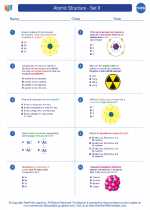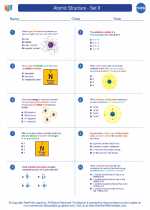Cooperation in Chemistry
Cooperation in chemistry refers to the interaction and collaboration between different atoms, molecules, and substances to achieve a common goal or outcome. This concept is fundamental to understanding various chemical processes and reactions that occur in the natural world and within laboratory settings.
Key Concepts
1. Chemical Bonding: Atoms cooperate with each other by forming chemical bonds to create stable compounds. This can occur through ionic bonding, covalent bonding, or metallic bonding.
2. Reaction Mechanisms: In chemical reactions, molecules cooperate by following specific reaction pathways to transform reactants into products. Understanding the mechanisms of these reactions is essential in predicting and controlling chemical transformations.
3. Catalysis: Catalysts are substances that facilitate chemical reactions by providing an alternative reaction pathway with lower activation energy. This cooperation between the catalyst and reactants allows for enhanced reaction rates and selectivity.
Study Guide
When studying cooperation in chemistry, it's important to focus on the following areas:
- Understand the different types of chemical bonding and how atoms cooperate to form stable compounds.
- Learn about reaction mechanisms and the concept of transition states in chemical reactions.
- Explore the role of catalysts in promoting cooperation between reactants and facilitating faster reaction rates.
- Study examples of cooperative interactions in biological systems, such as enzyme-substrate interactions and protein folding.
- Practice identifying cooperative behavior in various chemical processes and reactions through problem-solving and laboratory experiments.
Overall, cooperation in chemistry is a fundamental concept that underpins the behavior of matter and the processes that drive chemical transformations. By understanding how atoms, molecules, and substances cooperate, chemists can better predict and manipulate the outcome of chemical reactions.
.◂Chemistry Worksheets and Study Guides High School. Atomic Structure - Set II

 Worksheet/Answer key
Worksheet/Answer key
 Worksheet/Answer key
Worksheet/Answer key
